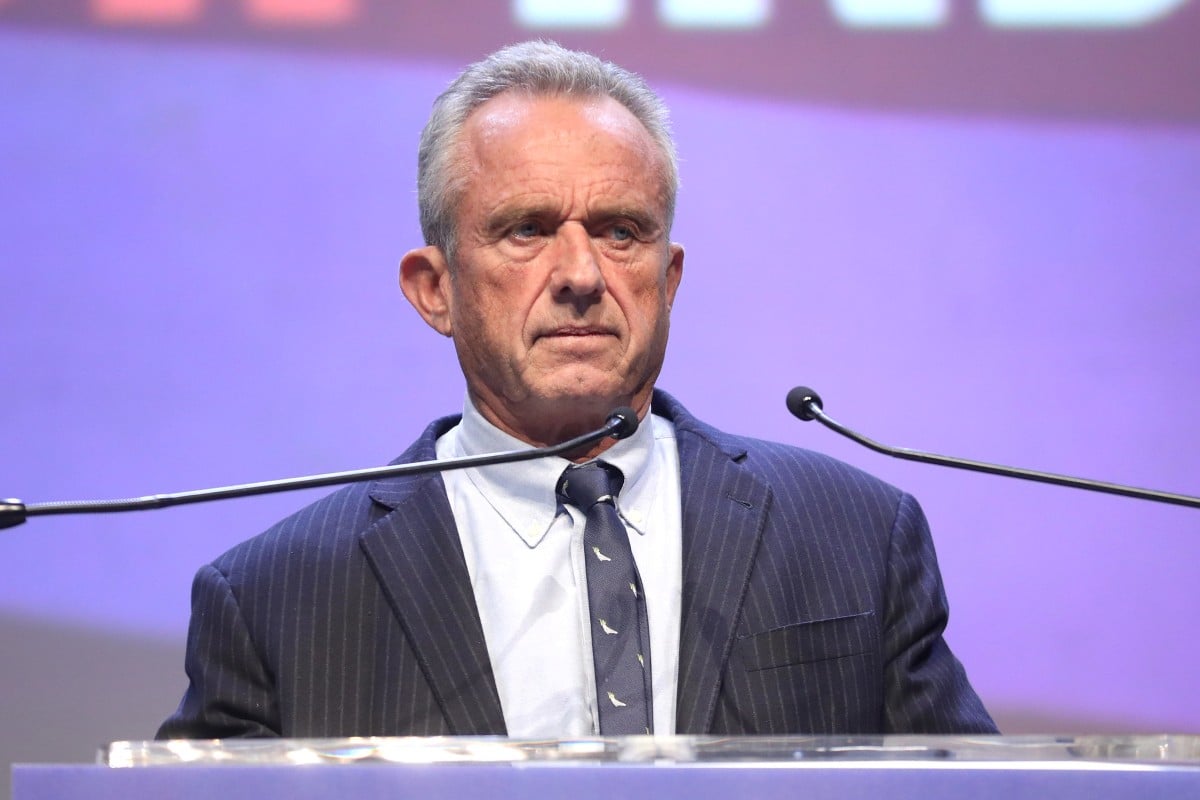RFK Jr. Walks Back Tylenol-Autism Claims
Health Secretary admits “not sufficient” evidence after month-long controversy sparks medical community backlash and Texas lawsuit

Health Secretary Robert F. Kennedy Jr. said October 29 that he does not have “sufficient” evidence to link Tylenol to autism, more than a month after the White House discouraged the medicine’s use by pregnant women and young children.
The statement marks a partial retreat from earlier claims made by Kennedy and President Donald Trump, who in September held a press conference specifically warning pregnant women against taking the pain medication without citing scientific evidence. Kennedy’s new comments came one day after Texas Attorney General Ken Paxton sued Kenvue, the maker of Tylenol, in a lawsuit that repeated the administration’s unproven claims.
“The causative association between Tylenol given in pregnancy and the perinatal periods is not sufficient to say it definitely causes autism. But it is very suggestive,” Kennedy told reporters, citing animal, blood and observational studies. In April, Kennedy’s HHS released a report claiming to find connections between acetaminophen use and autism risk.
According to CDC data published in April 2025, 1 in 31 children were diagnosed with autism by age 8 in the United States in 2022, an increase from 1 in 36 children in 2020. The prevalence of autism among boys reached 1 in 20, and the 2022 rate is five times higher than it was in 2000.
What You Need to Know
Four critical facts about the controversy
The controversy began September 22 when Trump and Kennedy held a joint news conference. “Don’t take Tylenol,” Trump said repeatedly. “Fight like hell not to take it.” The same day, the FDA announced it would initiate a safety label change for acetaminophen, the active ingredient in Tylenol and similar drugs.
The FDA stated it was “responding to prior clinical and laboratory studies that suggest a potential association between acetaminophen use during pregnancy and adverse neurodevelopmental outcomes.” However, the agency also acknowledged “contrary studies showing no association” and noted risks for untreated fever in pregnancy.
In a cabinet meeting October 9, Kennedy said: “Anybody who takes the stuff during pregnancy unless they have to, is irresponsible. It is not proof. We’re doing the studies to make the proof.” On October 26, Trump posted on Truth Social in all capital letters: “Pregnant Women, DON’T USE TYLENOL UNLESS ABSOLUTELY NECESSARY, DON’T GIVE TYLENOL TO YOUR YOUNG CHILD FOR VIRTUALLY ANY REASON.”
The claims initially hit shares of Kenvue, a consumer health company spun off from Johnson & Johnson in 2023. Similar to backlash Kennedy faced during the Texas measles outbreak, medical professionals pushed back strongly against the acetaminophen warnings.
Timeline: How It Unfolded
Seven months of escalating claims and walk-backs
Major health organizations have consistently rejected claims of a causal link. The World Health Organization reiterated in September that “no consistent association has been established” between the medication and autism, despite “extensive research.”
The American College of Obstetricians and Gynecologists stated that “in more than two decades of research on the use of acetaminophen in pregnancy, not a single reputable study has successfully concluded that the use of acetaminophen in any trimester of pregnancy causes neurodevelopmental disorders in children.”
The International Federation of Gynecology and Obstetrics and the European Medicines Agency both maintained that evidence does not support changing safety guidance for pregnant women.
Kenvue has repeatedly defended the pain medicine. “We agree, as Secretary Kennedy said, that the best message to pregnant women is to consult their healthcare professional before taking acetaminophen, which is what our Tylenol label tells consumers to do,” the company said in a statement. “We also agree that there is no definitive causative association between taking acetaminophen and autism.”
Who’s Saying What
Positions from key players in the controversy
On October 28, Texas Attorney General Ken Paxton launched a lawsuit accusing Johnson & Johnson and Kenvue of deceptive practices by having “deceptively marketed Tylenol as the only safe painkiller for pregnant women.”
“By holding Big Pharma accountable for poisoning our people, we will help Make America Healthy Again,” Paxton said in a statement, referencing Kennedy’s MAHA slogan. The lawsuit seeks to make the companies “destroy any marketing or advertising” that claims Tylenol is safe for pregnant women.
The Texas lawsuit echoes complaints from a group of parents who sued the makers of Tylenol in 2022. A federal judge dismissed that case, saying research from the parents’ expert witnesses was not conclusive.
Kennedy has spread similar health misinformation before. He recently banned thimerosal in flu shots despite scientific consensus on its safety. Kennedy also mischaracterized studies on male circumcision earlier this month, falsely claiming they showed an increase in autism among children who were “circumcised early.”
This pattern of promoting unproven health claims has concerned public health officials. The Autism Science Foundation issued a statement pushing back on the Trump and Kennedy remarks, noting they lacked scientific support.
The Numbers Behind the Story
Understanding the scale and context
Kenvue stressed in a statement that acetaminophen is the safest pain reliever option for pregnant women, noting that high fevers and pain are potential risks to pregnancies if left untreated. “We stand firmly with the global medical community that acknowledges the safety of acetaminophen and believe we will continue to be successful in litigation as these claims lack legal merit and scientific support,” the company said.
The Department of Health and Human Services said “given the conflicting literature and lack of clear causal evidence” it was encouraging clinicians to “exercise their best judgment.”
Asked if Kennedy’s latest comments signaled a softening of his stance, Emily G. Hilliard, Health and Human Services press secretary, said: “It’s the same position the Secretary has had since the beginning.”
Kennedy had pledged in April to undertake “a massive testing and research effort” that would determine the cause of autism in a matter of months. However, experts cautioned that finding a single cause of autism—thought by researchers to be the result of a complex mix of genetic and environmental factors—would not be simple. Autism is a form of lifelong neurodivergence and disability that affects how people experience and interact with the world, and is diagnosed using doctors’ observations.
The controversy illustrates ongoing tensions between the Trump administration’s health policy approach and established medical consensus. Similar disputes have emerged over vaccine policy and disease outbreaks.
The statements and actions described were reported by multiple sources and reflect claims made by government officials, health organizations, and private companies.


















